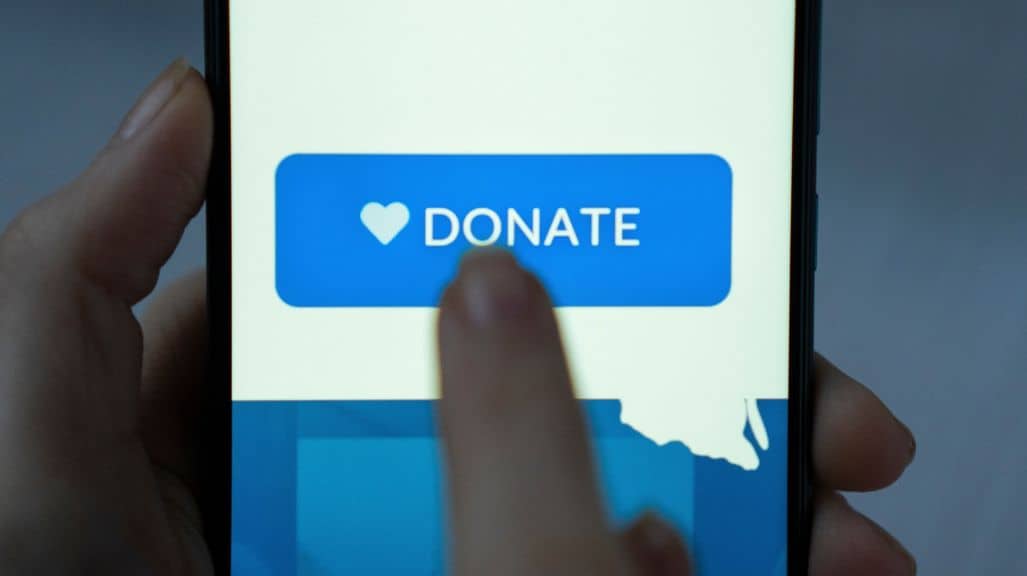Which best describes your accounting needs?

Making a donation feels good and in many cases, it can also reduce your tax bill. But not every donation is tax deductible, and there are strict rules about what qualifies and how to claim it.
In this guide, we explain how charity deductions work in Australia, the difference between deductible and non-deductible gifts, and how to make sure your good deed doesn’t go to waste when tax time comes around.
Can I claim a tax deduction for donating to charity?
Yes, but only if:
- The organisation is a Deductible Gift Recipient (DGR)
- Your donation is $2 or more
- You did not receive a material benefit in return
If all three of these conditions are met, you may be able to claim your donation as a tax deduction on your individual tax return.

What is a Deductible Gift Recipient (DGR)?
A DGR is a charity or organisation approved by the Australian Taxation Office (ATO) to receive tax-deductible donations. You can check if a charity is a DGR using the ABN Lookup or the ACNC Charity Register.
If the charity is not listed as a DGR, you can still donate — but you won’t be able to claim a deduction.
What types of donations are deductible?
To be tax-deductible, your donation must be:
- Voluntary
- $2 or more
- Given to a DGR-endorsed charity
You can claim deductions for:
- One-off cash donations
- Regular giving programs (e.g. monthly direct debits)
- Payroll giving (pre-tax donations through your employer)
- Certain gifts of property or shares (with special conditions)

What donations are NOT tax deductible?
You can’t claim a tax deduction for:
- Raffle tickets or fundraising event entry fees
- Buying merchandise (e.g., t-shirts, chocolates, badges)
- Donations made to crowdfunding campaigns or individuals
- Gifts made to overseas charities (unless they’re DGR-endorsed in Australia)
If you received anything of value in return, it usually won’t be tax-deductible.
How much can I claim on tax?
There is no limit on the total amount of donations you can claim. However:
- You must have a record or receipt for each donation
- The deduction will only reduce your taxable income, not give you a refund directly
- You must claim in the same financial year the donation was made
If you donate property or shares, special valuation rules apply, and you may need to spread the deduction over five years.
What is payroll giving?
Payroll giving is when your employer deducts donations before tax from your salary and sends them to a DGR charity. This means:
- You receive the tax benefit immediately (in each pay)
- You don’t need to claim the donation on your tax return
- Your payslips or employer statement are sufficient records
Ask your payroll department if they offer a payroll giving program.

Can I claim a donation I made in someone else’s name?
No. The deduction can only be claimed by the person who made the payment and whose name is on the receipt.
For joint donations, you can split the deduction based on who paid. For example, if you and your partner donated $200 from a joint account, you can each claim $100.
What if I donated anonymously?
If you donate anonymously (with no record linking the donation to your name), you cannot claim a tax deduction. Always ensure you receive a proper receipt with:
- The name of the DGR
- The amount donated
- The date of the donation
- A statement confirming the donation is tax-deductible
How do I claim charity donations on my tax return?
When completing your tax return, enter the total amount of deductible gifts under the section ‘Gifts or donations’.
The ATO may pre-fill some information for you (if the DGR reports it), but it’s still your responsibility to:
- Keep your receipts
- Report the correct amount
- Ensure the charity is a registered DGR
FAQs
Do I need to keep receipts for donations?
Yes. Keep all donation receipts for at least 5 years in case the ATO requests evidence.
Is donating to GoFundMe tax-deductible?
Generally, no. Personal crowdfunding campaigns are not tax-deductible, unless run by a DGR.
Are donations to churches tax-deductible?
Only if the church is registered as a DGR. Not all religious organisations qualify.
Can I claim non-cash donations (clothes, goods)?
In most cases, no. Only specific types of property (e.g., shares) donated to a DGR can be claimed, under special rules.
Can businesses claim donations?
Yes, as long as they meet the same criteria — donated to a DGR, over $2, no material benefit received.
Summary
Donating to charity can make a meaningful difference — and in many cases, it can also reduce your taxable income. But not all donations qualify. Make sure:
- The organisation is a registered DGR
- You receive a valid receipt
- You understand what is and isn’t claimable
Want to make sure you’re claiming everything you’re entitled to?
Whether you’re an individual or small business, understanding deductions can help you reduce your tax bill legally and effectively. Latitude Accountants are experienced in helping Australians navigate ATO rules and maximise their returns.
Contact Latitude Accountants today for smart, practical advice tailored to your situation.
📞 Contact Latitude Accountants
📧 info@latitudeaccountants.com.au
🌐 www.latitudeaccountants.com.au
Disclaimer
This information is general in nature and does not constitute financial or tax advice. Legislation and policies may change and individual circumstances vary. Always consult a registered tax agent or the ATO for advice specific to your situation.
Follow us on social
Need an accountant?

